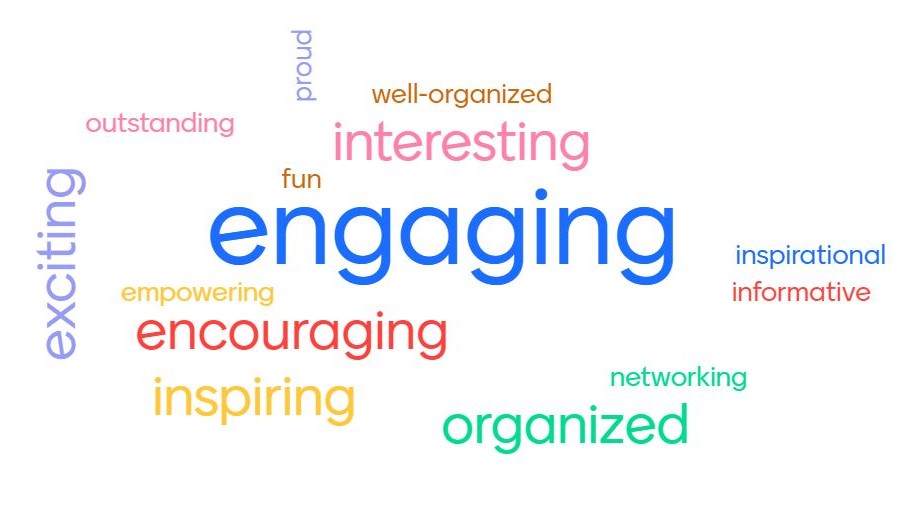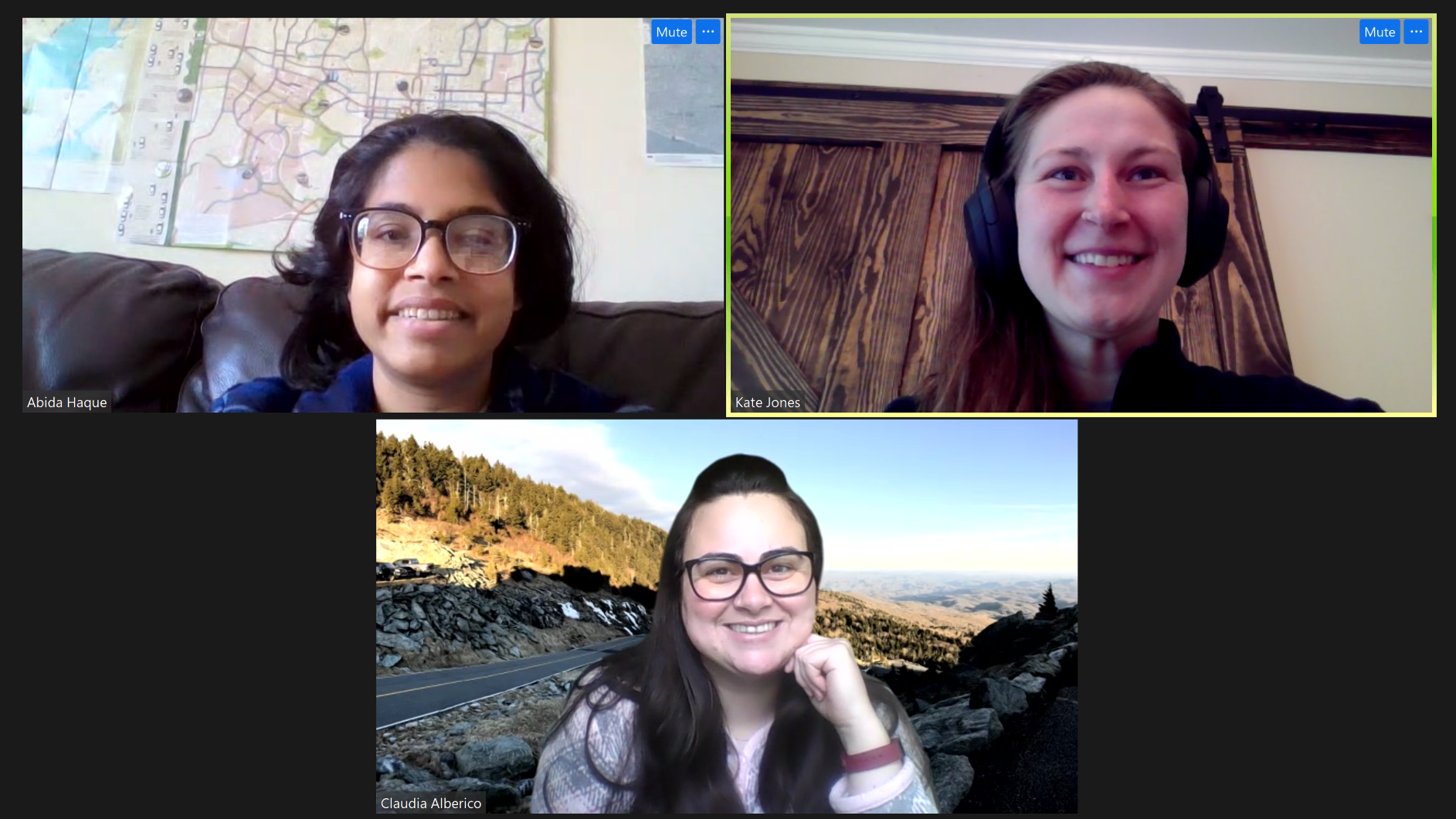Maintaining Your Mental Health in Quarantine

Quarantine and isolation are difficult, and often they can breed anxiety and depression. I consulted mental health ambassador Cody Zane about how to best maintain our mental health as graduate students or postdocs while in self-isolation.
While there are many articles about maintaining your mental health, Cody clarifies that it’s important to keep in mind your individuality. Self-care and mindful practices are unique to every person, and it’s important for people to try and find what practices work for them. Here, we hope to offer a useful starting point if you are in need of some self-care tips, especially in quarantine.
Socialize while Physical Distancing
Cody tells me how “self-isolation…fosters depression. Even in these times… physical distancing does not mean social isolation. There is still Zoom, FaceTime, [etc.].” While it’s not ideal, Cody continues, (especially if your love language is quality time or physical touch) at least you’re not isolating yourself completely.
Talk to people but remember to keep healthy boundaries. If you are an introvert, for example, and you didn’t speak with/hang out with people very often anyways, it might not be a good idea to make a Zoom-based hangout for every hour every day. This could exhaust you quickly. However, if you are an extrovert and people definitely energize you, apps like Skype, FaceTime, Zoom, and Houseparty might be lifesavers for you!
For example, if you had a weekly game night, virtual alternatives such as Jackbox Games might help fill in the gap and make for a good laugh with your friends and/or family! There are board games you can play on Zoom calls as well, such as Disney’s Villianous or Haunted House on the Hill. Although, these games require your friends to have the same game to play across the video call.
However, there is also a Tabletop Simulator on which you can pay for certain games, such as Monopoly or Catan to play across the internet. If you want to test your creative skills, try out roleplaying games such as Dungeon and Dragons or Blade in the Dark. There are a multitude of role playing games out there and just as many online groups which you can hop in on.
Find Feasible Ways to Manage Your Stress
Clinical Psychologist Desiree Dickerson wrote an article for Nature magazine about managing your stress, especially during lockdown. Some of her pieces of advice included:
- Knowing your red flags
- A red flag is generally a moment or action that could contribute to your stress or anxiety. For example, as mentioned above, scheduling too many social events (even virtually) could make you more stressed out if you’re an introvert.
- Negativity and compulsivity can also be red flags, especially in the COVID-19 pandemic news craze. Give yourself a break from the media for a day or try some daily breathing exercises to manage your worries.
- Practice compassion with others and especially with yourself
- This is a rough time and Desiree tells us that, even though there’s not a lot we can control outside of ourselves right now, “how we talk to ourselves during these challenging times can either provide a powerful buffer to these difficult circumstances or amplify our distress.”
- Cody reiterates this point, noting, “We can’t beat ourselves up.” He notes that we have a “hyper-productivity lie we tell ourselves” especially in quarantine where we believe we should be getting more done than we usually do since we have “more time” but it’s not possible.
- Long story, short: don’t feel guilty for taking a break or having coffee with others over Zoom.
- Practice mindfulness & stay present
- While some forms of escapism, such as video gaming (hello Animal Crossing craze!) and fiction reading can be helpful, it’s important to stay mindful and present, even during this stressful time.
- Studies show that regular mindfulness practices (such as meditation, yoga, or prayer) can “decrease stress and alleviate anxiety and depression.”
- Some mindfulness practices, such as grounding techniques during anxiety attacks, can mean the world. If you’re new to mindfulness try out popular apps, such as Calm or Buddhify.
Manage Your Expectations and Find a Steady Routine
Most of us before quarantine had a firm routine. We woke up, maybe exercised or had coffee and breakfast, drove to campus, had class, worked in the lab, taught classes, hung out at Jubala or Port City Java, held office hours, ate meals, and then went home. Routine is safe and gives life order and a feeling of control. Suddenly isolating at home can feel like we’re out of control and that’s why it’s valuable to create a new routine for your life until we can go back to the “usual.”
Here are some tips for finding a steady routine in quarantine:
- Wake up and go to bed every day at roughly the same times
- Eat meals around the same times every day as well
- Try to emulate your schedule from before COVID-19 life. For example, if you had class on Mondays from 10 am to noon, try to do coursework online during that same time
- Schedule times to exercise, either inside (such as workout videos, yoga, or pilates) or outside (such as taking a walk around your neighborhood, keeping a safe distance from neighbors of course)
- Pencil in sunshine time! Some studies have found that just 10-30 minutes of direct sunlight a day can help boost your immune system and fight off depression!
- While getting your daily exercise and sunshine vitamin dose, try not to cram into parks and greenways too often, because that’s not physical distancing and can endanger others around you. Instead, sit on your porch, walk around your neighborhood, or even lay out in the sun in your yard!
During quarantine, you might notice that you have a little extra time and you want to try everything you never had time to do before right now! However, it might not be a good idea to start too many new projects or skill-building activities right now, especially in the midst of stress-management.
It’s important to manage your expectations and set small expectations/to-dos/goals so that you can better set yourself up for success. Remember to also practice that self-compassion: it’s okay if you’re not earning a bunch of new skills right now. It’s not about whether you have discipline or not; it’s about taking care of yourself during a global pandemic.
Try Some of These Other Activities To Care for Mental Health
- Change Your Viewpoint
- Make sure you figure out ways to get up and change scenery when you can. Move from your bedroom to the living room to the porch, etc. You will be surprised by the change in your work flow.
- Baking/Cooking
- There’s a bread-making craze sweeping the globe, and it’s no wonder as the routine and care involved in a sourdough starter can help ease your worries in this crisis. And sharing your communal bread making is another act of staying social!
- Crockpot meals are a great way to have something cooking all day long, to get you up from your computer every once in a while to check on the food, but is a relatively low maintenance cooking style.
- Foster/adopt an animal
- If you were already considering getting a pet before the outbreak, this might be an excellent time to adopt/foster. After all, we’re home more often now to care for our furry friends and many shelters have voiced a need for foster parents and adopters.
- See your local ASPCA for more information!
- If you had not considered this option before, though, tread carefully as a national quarantine might not be the best time to jump head first into your first pet experience. There is a lot that goes into owning a pet and is not a decision to make on a whim.
- If you were already considering getting a pet before the outbreak, this might be an excellent time to adopt/foster. After all, we’re home more often now to care for our furry friends and many shelters have voiced a need for foster parents and adopters.
- Adopt a houseplant
- If animals are too much responsibility (especially right now), consider getting a new plant friend to care for instead!
- Studies show that gardening is a great way to stay present, mentally active, and stress-free. It can also help alleviate your stress during quarantine.
- Make some art
- Creatively expressing yourself during this stressful time is so valuable. Make some time to creatively write a story or poem, draw, color, play/write music, etc.
- Start small and work your way up. It’s the same with most things. E.g. Michael Phelps had to learn small swimming strokes before large power moves in order to become a good swimmer, etc.
Cody reiterates that mental health is unique and personal, so make sure you choose what works for you. This might not be the best time to trial by fire something. For example, if you’re on the fence about fostering a dog, maybe backburner that idea for now. But if it’s been on your mind for a while, this might be a great time!
NC State Resources for Stress Relief during COVID-19
Even if we can’t see each other on campus every day, the Wolfpack is staying strong with an abundance of resources to keep you healthy and happy until we can all be on campus again.
- The Counseling Center is still up and running for your mental health needs!
- Just get in touch with them here and they’ll email you the necessary paperwork so you’re set up with a virtual counseling appointment. They’re here and ready to help you through this crisis!
- There are also Virtual Drop-In groups, including:
- Pack Park (opens Zoom link), which “provides students the opportunity to develop community among the members of the Wolfpack who have been affected by the loss of a loved one.”
- Mondays from 1:30 to 2:45 p.m. EST
- International Tea Time (opens Zoom link), which is a space to just “show up, meet peers, learn about other cultures, relax, and support each other.” Open to all international and domestic students.
- Mondays between 3:00 – 5:00 p.m. EST
- The Nature Experience (opens Zoom link), where students can get their “daily dose of time outside (which research has proven to be beneficial to overall well-being), connect with others,” and just find “a time to be mindful and at peace.”
- Wednesdays at 12:00 p.m. EST
- Virtual Meditation (opens Zoom link) where students can “join experienced meditators and mental health clinicians to learn this ancient and timely practice.”
- Wednesdays at 4:00 p.m. EST and Thursdays at 10:00 a.m. EST
- Start the Convo (opens Zoomlink), which is a space where students feeling lost in transition and major life adjustments can find community and talk through these emotions.
- Wednesdays from 8:00 – 9:00 p.m. EST
- The Sister Circle, which is a “Womxn of Color support space opened to all students who identify as a Womxn of Color” [sic]
- Pack Park (opens Zoom link), which “provides students the opportunity to develop community among the members of the Wolfpack who have been affected by the loss of a loved one.”
- The Counseling Center can help you build your toolbox and help you manage the stress that you’re going through right now.
- NC State’s Craft Center’s “Craft Relief” Efforts
- This is a virtual space to creatively express yourself by learning a new artistic skill, such as calligraphy or screen printing
Remember though to manage your expectations with new hobbies/skills that you’re learning while in isolation. Learning anything is always recursive and nonlinear, so be kind to yourself. You are not alone.
- Categories:


